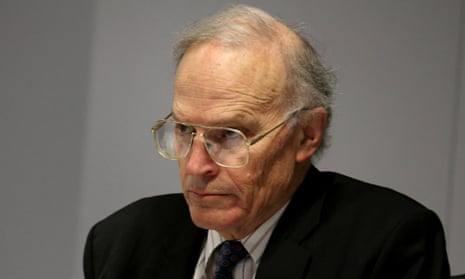All federal departments and agencies are being asked to disclose every contact with any trade union for any reason for the past decade to identify “potential areas of exposure” to the royal commission into union corruption, a leaked document reveals.
The document includes a specific question about “allegations of wrong-doing by former ministers”.
The Australian Council of Trade Unions says the sweeping information-gathering exercise proves the Abbott government wants to use the royal commission as a “taxpayer-funded political witch-hunt” and that it contravenes long accepted practice that departments do not provide ministers with briefs and documents relating to decisions by previous governments, their ministers and their advisers.
“This is a clear abuse of power by the government, because it is effectively saying to federal departments there is no legitimate basis for them to interact with a union about anything, that any interaction is somehow suspected of corrupt purpose," ACTU assistant secretary Tim Lyons said. "It is as if they are waging a war of extermination against unions.”
He said the ACTU had sought legal advice about the document.
Among the questions, departments and agencies are asked if they have “documents that contain credible allegations of wrongdoing by a commonwealth official (including a minister, agency head, ministerial advisor or [public servant]) in relation to a trade union or their officials”.
The letter, from the department of the attorney general, George Brandis, says that although the royal commission has so far “had limited attention on the commonwealth ... this could change at any time should an allegation be made about the conduct of a minister, employee, agency or other matter”.
“In the event that a credible allegation were made against the commonwealth it is important that the commonwealth is able to respond quickly. Accordingly we seek your assistance in identifying potential areas of commonwealth exposure,” it says, demanding a reply to a 10-part questionnaire by Friday.
Departments are assured their “response will be kept confidential and legal professional privilege may be claimed over its contents”.
Departments are then asked to reveal whether any trade union officials have ever been appointed to any commonwealth agency they administer, whether any trade union officials are routinely consulted by their department, whether any significant property has been bought from or sold to a trade union, whether any grants, including research grants, have been made to trade unions, whether any gifts or donations have been received from trade unions and whether the department has consulted trade unions regarding “workplace relations matters relevant to your employees”.
In each case the document cites the five unions named in the royal commission’s terms of reference: the Australian Workers Union (AWU); the Construction, Forestry, Mining and Energy Union (CFMEU); the Health Services Union (HSU); the Transport Workers Union (TWU); and the Communications, Electrical and Plumbing union (CEPU). It then adds “other, please specify” – extending the required answers to any contact with any union.
Lyons said the document asks departments for information the royal commission has not requested, and for information which goes well beyond the royal commission’s terms of reference.
Lyons asked: “Why is the attorney general’s department seeking information that hasn’t been asked for, and which goes well beyond the commission’s terms of reference?
“There is no justification for the department to seek such broad ranging information going back a decade. A blanket campaign against unions would be a serious, anti-democratic abuse of power,” he said.
The final questions asks whether the department has been approached by the royal commission for information, but does not demand to know details of what information has been provided.
The royal commission into trade union governance and corruption was established in March and commissioner Dyson Heydon has been asked to report by December.
The commission has conducted extensive hearings and has received allegations of corruption and intimidation in the construction industry. It recently issued a paper calling for submissions about special funds used for union election battles and personal spending by union leaders.
"Of particular interest to the royal commission are the types of entities that have been referred to as slush funds," the paper said.

Comments (…)
Sign in or create your Guardian account to join the discussion